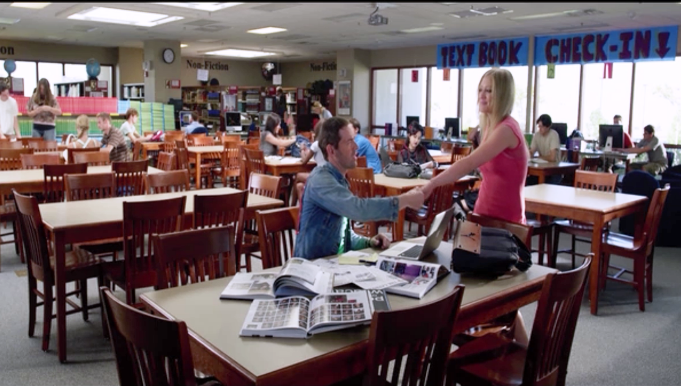I think I first learned about the missionaries who left Massachusetts almost 200 years ago to go to Hawaii from my e-mail subscription to
MassMoments which provides me with a daily bit of trivia from my adopted home state. I have enjoyed listening to Sarah Vowell on NPR for at least two decades. My husband and I have also read some of her other books out loud together. Such was the case with
Unfamiliar Fishes.
Ms. Vowell is tireless in her research. She visits Hawaiian landmarks, museums, and libraries in her quest to tell Hawaii's history. Her travels take her to the Mission Houses Museum's library where she reads the letters and diaries left behind by New England missionaries. The Mission Houses Museum is a complex of homes where the original missionaries lived - huts made out of tufted pili grass.
In his memoir Hiram Bingham wrote, "A house thus thatched assumes the appearance of a long hay stack." Fitting that a pious expedition first envisioned at the Haystack Meeting in Massachusetts would find New England missionaries holed up in thatched homes in Polynesia-much to Hiram Bingham's dismay. "Such houses," he grumbled, "are ill adapted to promote health of body, vigor of intellect, neatness of person, food, clothing or lodging, and much less, longevity. They cannot be washed, scoured, polished, or painted." They are no place, he continued, "for the security of valuable writings, books, or treasures." He would be relieved to learn that some day the mission descendants would build a climate-controlled library next door to care for (and lock up) his and his fellows' writings.
Fun Fact:
The Hiram Bingham to which she refers in the above is the grandfather of the Hiram Bingham credited with "discovering"
Machu Picchu in 1911
Also at the Mission Houses Museum, she meets librarian Laurel Douglass, alumna of the Punahou School (the same school from which President Barak Obama graduated).
Within about a minute of the librarian from the Hawaiian Historical Society introducing us she (Douglass) was rifling through a thick folder of papers to show me her morning's research. She had been reading the diary of Moses, a student at the school who was a grandson of Kamehameha I.
Vowell quickly realizes, however, that Douglass is not just doing your "garden-variety" genealogical research.
The way she talks about Moses and his schoolmates speaks to her interest in uncovering truth about her forebears. Like any genealogical researcher, her blood pressures rises a bit when she sees Amos Cooke's name in print; in her case it is because she despises Cooke for beating the royal children with a whip.
Douglass also tells Vowell that she lived in Reno, Nevada for a while working as a blackjack dealer - "the worst blackjack dealer Harrah's ever turned out" in fact.
The book includes quite a bit of information about the hula, and its history, and the fact that the missionaries found it rather distasteful. The dance that is now almost synonymous with Hawaii, was actually outlawed at one point in its history when
Queen Kaahumanu converted to Christianity. It was brought back to the culture of the islands by
Kalakaua who celebrated his coronation with two weeks of festivities, during which "hula performances were featured prominently."
Vowell goes on to connect the censoring of the dance to the censoring of words. She quotes John-Mario Sevilla
When he placed the hula at the center of his coronation, Kalkakua made a significant gesture to the past, which is where Hawaiians traditionally looked for truth and meaning, in the face of rapid contemporary change. By challenging the foreign shame of the hula, he popularized and, therefore, politicized it. It's as if he decided to write and publish books after all the libraries had been burned. (emphasis mine).
The censorship connection was more than just metaphorical, however,
A missionary descendant, William R. Castle, held on to his forebears' disdain for the art form and insisted that the printers who published the coronation program of the hula chants be arrested for obscenity. One of the issues was the inclusion of hula ma'i, the traditional songs praising a chief's genitals. Noenoe Silva points out that the sexuality of these hula was meaningful to the king and his people because the natives "had suffered depopulation caused by epidemics of foreign disease and also by childlessness".
I am again reminded of an important lesson I learned in my library school days: there is something to offend everyone, and everyone is offended by something.
My husband also blogged about this book when we finished reading it last night.
His post can be found here.







































